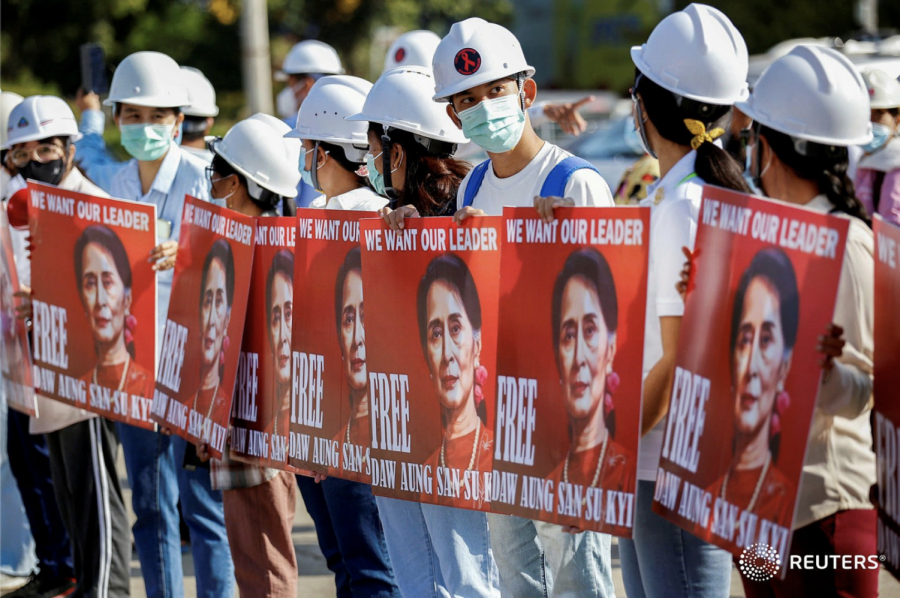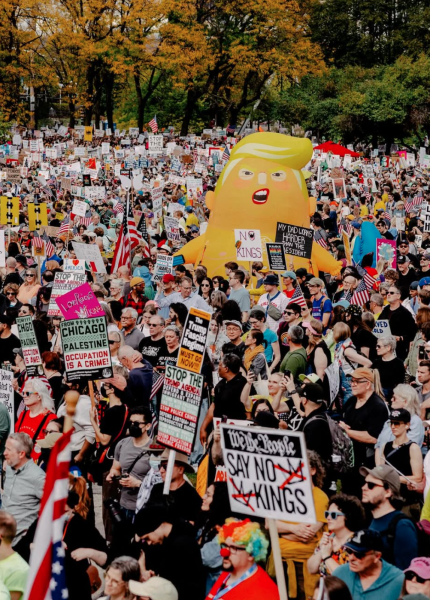Democratic Nations Must Take a Stand for Myanmar
On Feb. 1, the delicate democracy of Myanmar cracked as the military overthrew civilian leaders and returned the country to full military rule. The civilian population watched as the military arrested and detained their elected civilian leaders, shut off the internet, cut power to the city and stopped flights. However, citizens have risen up to protest the actions of the military and advocate for a return to democracy despite a curfew and ban on large gatherings.
The people of Myanmar showed their will during their Nov. 8 election. They picked their civilian leaders; they picked democracy over a military state. Now, their democracy is being attacked. It’s the responsibility of democratic nations to stand up for these values worldwide. But if only the United States is involved, the effectiveness of its support of the people of Myanmar is compromised.
The Biden Administration suggested that it would penalize Myanmar’s generals with sanctions, which were officially announced on Feb. 11. When Biden announced the sanctions, he said, “The people of Burma [Myanmar] are making their voices heard and the world is watching … Violence against those exerting their democratic rights is unacceptable.” Biden and his administration are doing exactly what he promised to do throughout his campaign — return American foreign policy to American values, like human rights and democratization. However, the effectiveness of the United States sanctions on Myanmar is in question.
The United States has a long-standing history of supporting democracies and values that are upheld in its Constitution. While not all of these attempts have gone well, most leaders of the United States have felt that it is the nation’s duty to interfere when freedom is threatened. Biden chose to withdraw aid to Myanmar’s government, keeping the generals from drawing on the $1 billion their government held in the United States, as well as adding sanctions on 10 high-profile individuals and three companies based there.
These sanctions have some significance, as they block a sum of money that generals could use to promote their agenda across the country. However, beyond this sum of money, there isn’t much the United States can do to put pressure on the coup leadership. The United States sends very little foreign aid to the Myanmar government and none to the military. Myanmar also does very little trade with the United States, instead trading with regional nations, which renders U.S. trade sanctions irrelevant.
In the event that the pressure campaign is successful and civilian leaders return to their positions of power, Myanmar has a long way to go to become a politically stable democracy. Myanmar’s military has been able to run without much oversight from the government, committing atrocities to ethnic minorities while civilian leaders turn a blind eye. Beyond this lack of control, the governmental system in place in Myanmar favors the military.
According to Myanmar’s constitution, the military gets to hold 25% of the seats in parliament, which has allowed it to shape laws that benefit it and hold influence over all parts of Myanmar’s democracy. The political tension and fight for power between the military and the civilian leaders of Myanmar isn’t going to diffuse solely because of a pressure campaign — their system is built to enable this tension.
If the United States wants this pressure campaign to work, they must force countries like China, which is creating most of the infrastructure in Myanmar, to get involved. Without this crucial help, the sanctions the United States has instituted take a stand for democracy, but ultimately do nothing to keep the democracy in Myanmar alive.
Samantha Scott, FCRH ’24, is an international political economy major from Columbus, Ohio.








































































































































































































